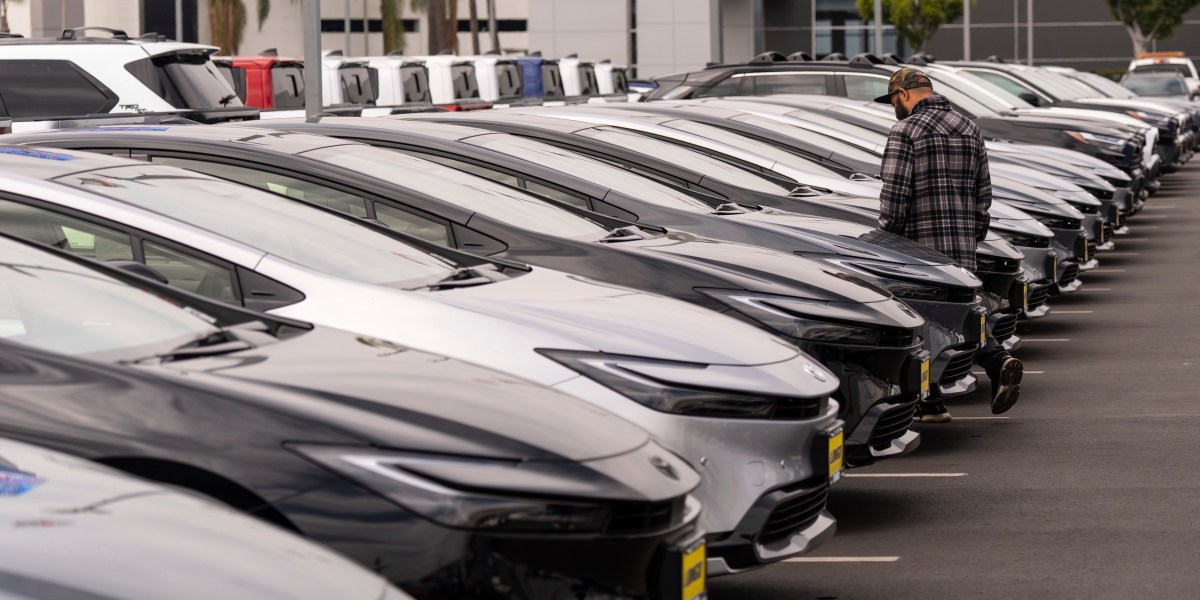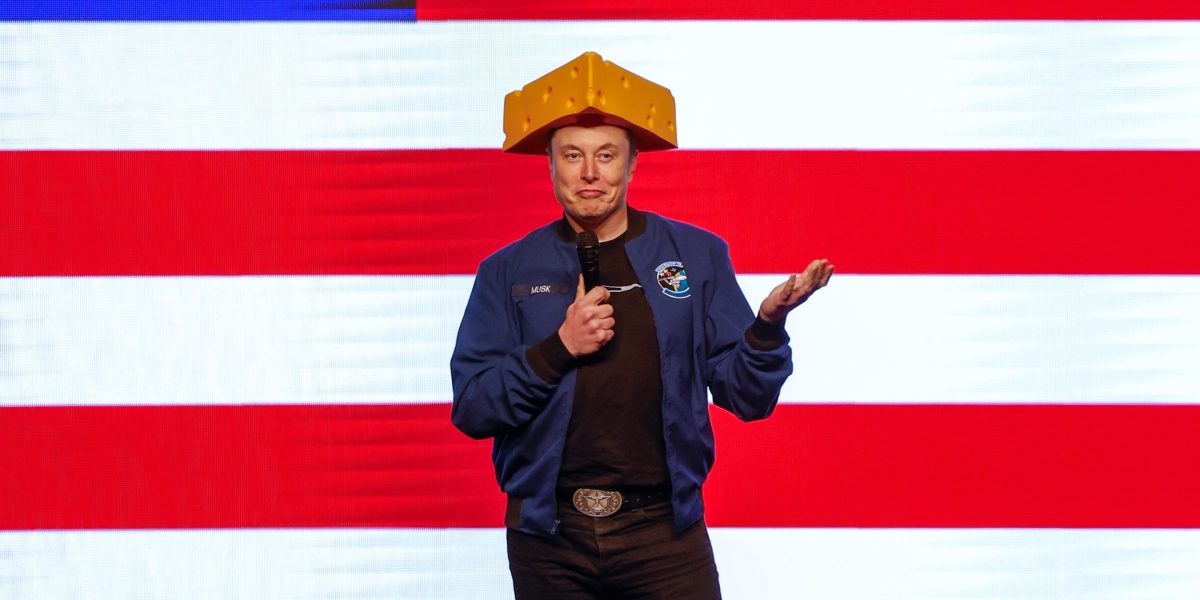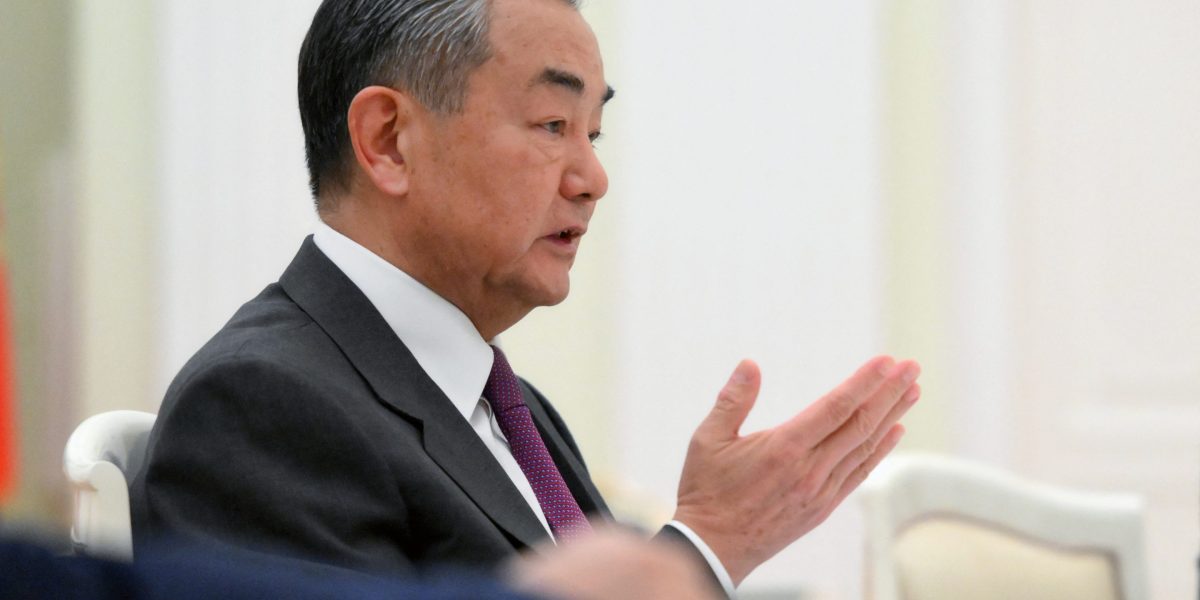Even if you’re not in the market for a new car, U.S. President Donald Trump’s 25% tariffs on auto imports could make owning one more expensive.
The new taxes, which are set to begin April 3 and expand in the following weeks, are estimated to raise the average cost of a car imported from another country by thousands of dollars. But repairs for vehicles that currently use foreign-made parts are also expected to get pricier — and, as a result, hike insurance costs farther down the road.
While the White House says these tariffs will foster domestic manufacturing and raise $100 billion in revenue annually, economists stress that straining the auto industry’s global supply chain brings significant disruptions. Dealerships and car repair shops will likely have little choice but to raise prices — leading drivers across the country to pay more for everyday maintenance.
Here’s what you need to know.
How will tariffs affect my next car repair?
It depends on what you need fixed and where you go in to get your car serviced. But some industry analysts warn that drivers could see costs jump in as early as the coming weeks or months.
“If you are bringing your car to get repaired, chances are, it’s going to have a part that comes from another country,” said Jessica Caldwell, head of insights at auto-buying resource Edmunds. “That price that you pay is likely going to be directly affected by the increase (from these tariffs).”
Trump’s Wednesday proclamation on auto tariffs points specifically to engines, transmissions, powertrain parts and electrical components. That covers a lot of repairs as is, Caldwell notes, and the administration has also signaled the possibility of future expansion.
And while automakers may develop new pricing strategies for new vehicles impacted by tariffs, Caldwell expects they will to be less likely to absorb the costs of individual parts — leaving consumers with the bill perhaps more imminently.
Much of the car repair market has heavily relied on imports, particularly from America’s biggest trading partners. According to February numbers from the American Property Casualty Insurance Association, a trade group that represents home, auto and business insurers, about 6 in every 10 auto replacements parts used in U.S. auto shop repairs are imported from Mexico, Canada and China.
“You can’t walk into a dealership today and not see a United Nations of parts,” said Skyler Chadwick, director of Product Consulting at Cox Automotive. But sourcing and supply varies between each servicer, he adds, making it all the more complex to nail down when exactly prices will rise after these tariffs take effect.
Desiree Hill, owner of Crown’s Corner, an auto repair and mechanics shop in Conyers, Georgia, says the auto tariffs were already hurting her business. She was working on repairing a vintage 1960 Opel Rekord car and ordered a part from Germany, but the manufacturer canceled the order due to the tariffs.
“I can’t get (the part) anywhere in our country. Period. So that that was very disappointing,” she said.
About half of the cars she works on are foreign-made, so the tariffs will make repairing those cars more difficult.
“Unfortunately we don’t have a choice but to raise prices if they are raised on us,” she said. “We can’t take that kind of loss.”
Car repair prices have already been on the rise for years, with analysts pointing both to growing labor costs and more expensive components needed for vehicles with advanced technology.
Edward Salamy, executive director of the Automotive Body Parts Association, also says car companies have been trying to “gain a monopoly” to limit remedies to their own parts or processes, reducing options for consumers.
Tariffs, he said, will just exacerbate the issue: “Many of these distributors will have no choice but to raise their list price.”
How are car dealerships managing?
Joshua Allrich, who operates a family-owned used car dealership called Allrich Auto in Atlanta, is among those concerned about facing higher costs while also trying to save his customers money.
“It’s going to make things a lot more expensive,” Allirch said, adding that, while he’s looking forward to the possibility of people rushing to buy cars before the tariffs take effect, his business will soon have to adjust. “My wheelhouse is economy cars, affordable cars. And now, this tariff is going to directly hit us because it’s gonna just make things go up.”
Chadwick says that dealers and other servicers will need to be as transparent as possible as these tariffs take effect while also preparing to have difficult conversations about rising prices with customers.
He adds that tariffs are also going to put pressures on the reselling market. Used cars often have to be serviced before dealerships can sell them back to customers — again opening the door for higher repair costs due to tariffs. And “all that cost goes right back into the consumer” through what they end up having to pay for the vehicle, he explains.
In efforts to delay impacts, some dealers and repair shops might turn to stocking up on inventory before tariffs hit, particularly for parts that get requested the most. Analysts say many have long-anticipated the threat of auto tariffs, and are already grappling with the impact of Trump’s new steel and aluminum levies that took effect earlier this month.
But stockpiling can only go so far. And for small business owners, spending money for a lot of inventory at once can be risky, especially when Trump’s on-again, off-again tariff threats raise questions about how long they will last.
If they end up being short-lived, Caldwell said, “Do you really want to buy a bunch of inventory that you’re going to have to sit and hold on (to) for quite some time?”
What will happen to my insurance premiums?
Because accidents involving new parts will see increased costs for repairs, insurance premiums will also likely rise due to tariffs.
But that may be farther into the future. Bob Passmore, department vice president of personal lines at the American Property Casualty Insurance Association, expects consumers to see an impact on their insurance bill in 12 to 18 months at a minimum. That’s because increased prices have to hit claims costs, then be implemented after new rates are filed and approved.
Still, the trade association has estimated that personal auto insurance claims costs alone could rise a total of between $7 billion and $24 billion annually.
It wasn’t immediately clear how large providers of auto insurance were preparing for the impacts of these tariffs. Allstate, State Farm, Geico and Progressive did not immediately respond to The Associated Press’ requests for comment on Friday.
But even if it takes long to trickle down, these tariff-related hikes would again arrive as consumers have already faced rising insurance costs. The Insurance Information Institute estimated that average U.S. auto premiums increased 14% in 2023 and 12% in 2024.
Mark Friedlander, the institute’s senior director of media relations, said via email that the research trade nonprofit projected a 7% average premium increase for auto insurance across in 2025 at the start of the year — but that didn’t account for potential tariff impacts, which will drive them even higher.
Increased costs spanning from tariffs cause a “chain reaction for insurance,” Caldwell adds. “This is a total ownership cost increase, rather than just a purchase increase.”
This story was originally featured on Fortune.com
Source link

 Entertainment8 years ago
Entertainment8 years ago
 Politics8 years ago
Politics8 years ago
 Entertainment8 years ago
Entertainment8 years ago
 Entertainment8 years ago
Entertainment8 years ago
 Tech8 years ago
Tech8 years ago
 Tech8 years ago
Tech8 years ago
 Tech8 years ago
Tech8 years ago
 Politics8 years ago
Politics8 years ago







